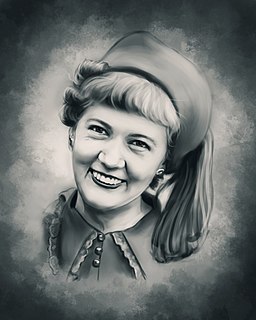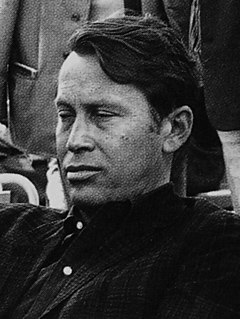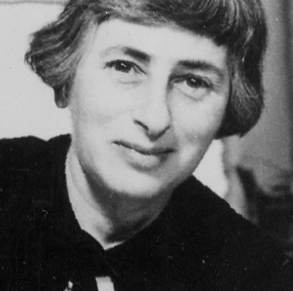A Quote by Edith Sitwell
The poet speaks to all men of that other life of theirs that they have smothered and forgotten.
Related Quotes
He who speaks from the lips chatters. He who speaks from an empty mind adds confusion to discord. He who speaks from a full mind feeds the minds of men. He who speaks from his heart wins the confidence of mankind. But he who speaks from his soul heals the heartbreaks of a world and feeds the hungry, starving souls of men. He can dry the tears of anguish and pain. He can bring light, for he will carry light.
People probably long for something genuinely personal in a society where the personal is often indistinguishable from the "personalized." Maybe the poetry audience member is searching for his or her own "personal space" and they expect the poet to be a sort of avatar of the private life. But that sort of representation is distasteful to me. Asking a poet to represent the personal life is, paradoxically, to turn the poet into something other than a person.
Genius in the poet, like the nomad of Arabia, ever a wanderer, still ever makes a home where the well or the palm-tree invites it to pitch the tent. Perpetually passing out of himself and his own positive circumstantial condition of being into other hearts and into other conditions, the poet obtains his knowledge of human life by transporting his own life into the lives of others.






































